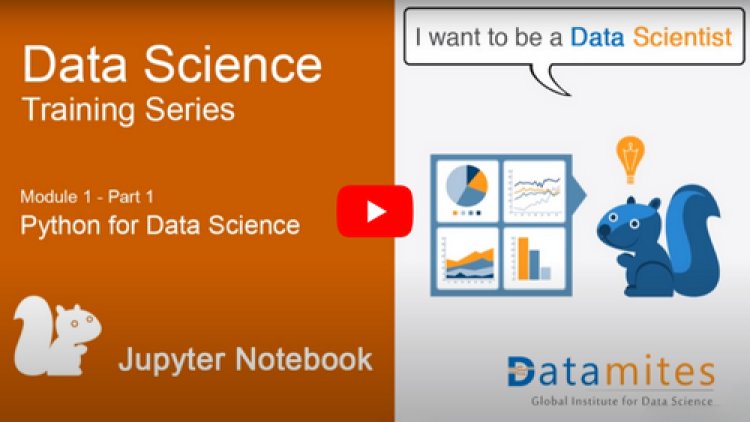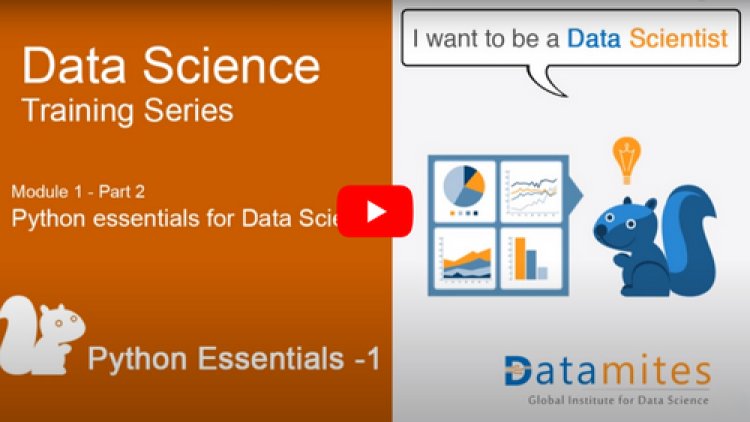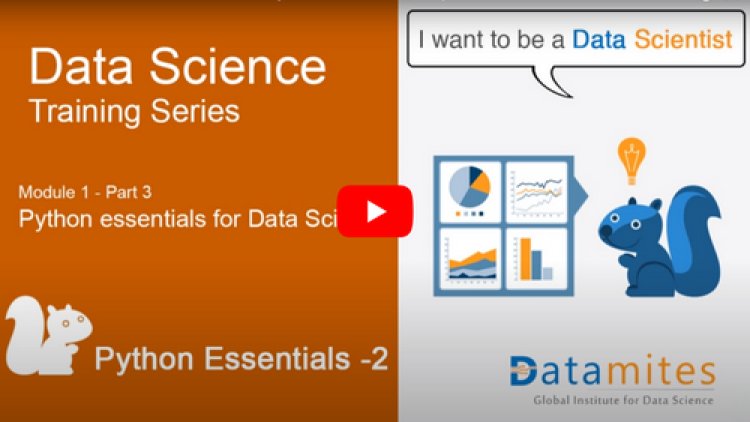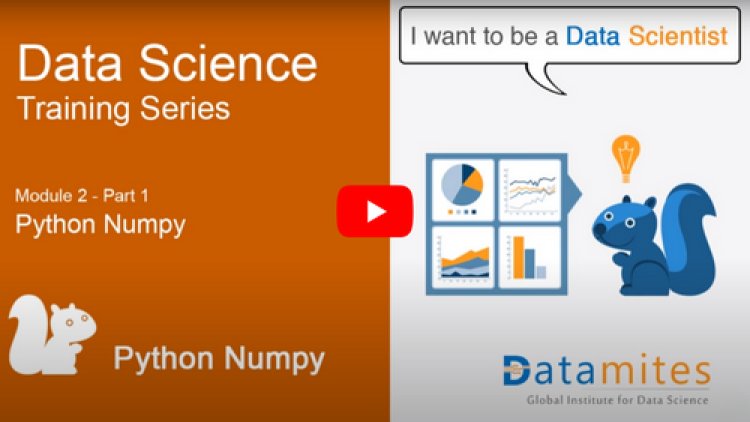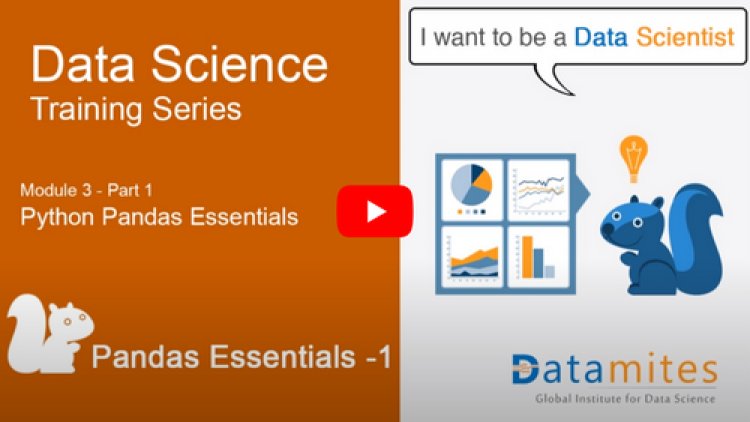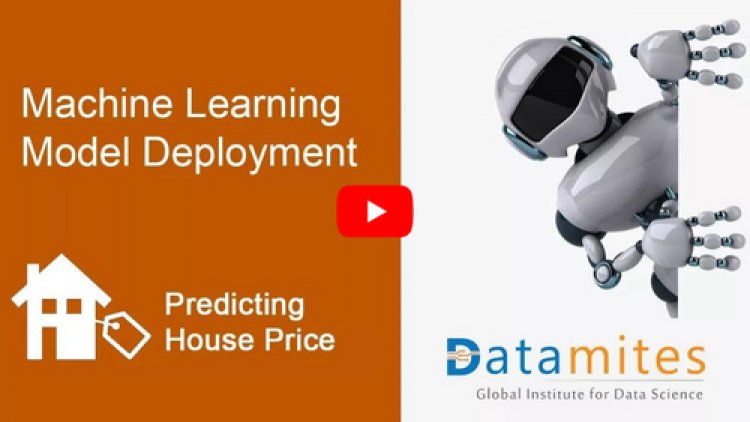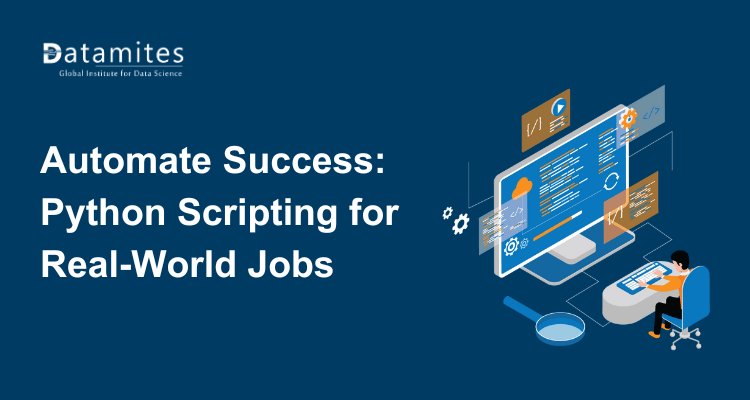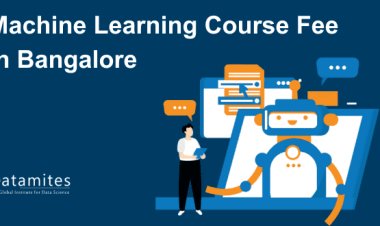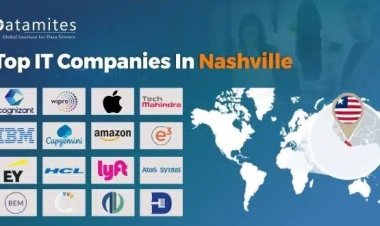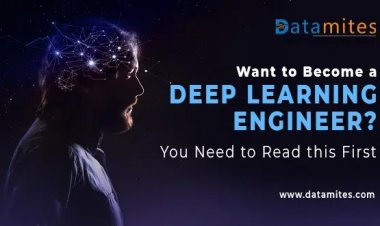Difference Between Data Science And Machine Learning
Data Science is a broad field that focuses on extracting insights from data using analytical and statistical methods. Machine Learning is a subset of Data Science that builds algorithms to enable systems to learn from data and make predictions or decisions.
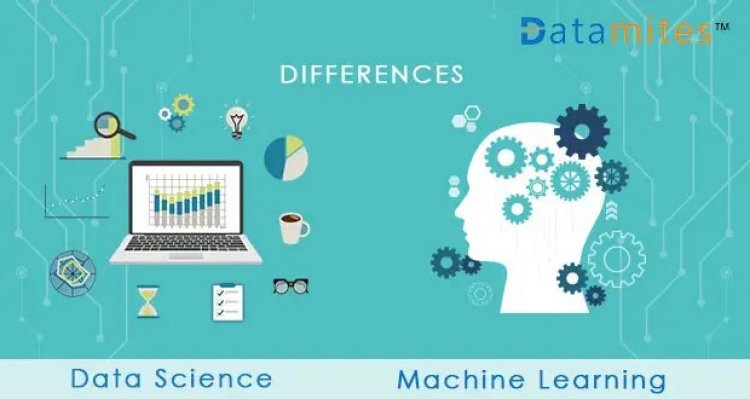
Data Science and Machine Learning are two of the most dynamic and high-growth areas in technology today. With companies like Amazon, Facebook, and Google showcasing the immense potential of these technologies to drive scalable business success, interest in these fields is soaring. Yet, there's often confusion among those entering the space about how they differ. Despite this, one thing is clear: both Data Science and Machine Learning are at the forefront of innovation, enhancing efficiency and creating value across industries. With projected compound annual growth rates around 27–30% for Data Science and 30–35%+ for Machine Learning, momentum in both fields remains strong.
What is Data Science?
Data Science is all about collecting, cleaning, and analyzing data from different sources to find patterns and insights that help businesses make smarter decisions. With the huge amounts of data being generated every second, companies use Data Science to make sense of it all. Take Amazon, for example—they rely on powerful data tools to understand what you browse and buy so they can suggest products you’re likely to want.
The demand for Data Science jobs is booming, expected to grow by around 35% through 2032. That means about 17,700 new roles opening up each year. Around the world, millions of people already work in the field, with global growth hitting roughly 27% annually. It’s no surprise that Data Science is considered one of the top IT courses in demand today. Plus, these jobs usually come with great salaries, making Data Science an exciting and rewarding career path.
Real-World Applications of Data Science
Here are some real-world applications of Data Science across various industries:
- Healthcare – Disease prediction and personalized treatments
- E-commerce – Product recommendations and fraud detection
- Finance – Risk management and credit scoring
- Marketing – Targeted ads and customer segmentation
- Manufacturing – Quality control and predictive maintenance
- Education – Personalized learning and student performance tracking
Key Skills Required for Data Science
- Ability to work with large and unstructured datasets from various sources.
- Strong understanding of analytical functions.
- Proficiency in SQL for database operations.
- Hands-on knowledge of tools like R and Python.
- A successful Data Scientist combines expertise in analytics, programming, and domain-specific knowledge.
Tools and Technologies Used for Data Science
Data Scientists use various tools to manage, analyze, and visualize data:
- Programming: Python, R, SQL
- Visualization: Tableau, Power BI, Matplotlib, Seaborn
- Big Data: Hadoop, Spark, Kafka
- Machine Learning: Scikit-learn, TensorFlow, Keras
- Databases: MySQL, PostgreSQL, MongoDB
- Cloud Platforms: AWS, Google Cloud, Azure
These tools help process large datasets, build models, and deliver actionable insights efficiently.
Refer these articles:
- The Role of Data Science in Cyber Security
- Top 10 Data Mining Tools Every Data Scientist Should Know
- How Generative AI is Changing the Role of Data Scientists
What is Machine Learning?
Machine Learning is a targeted branch of Data Science that empowers systems to learn from massive datasets, detect patterns, and automate decision‑making with minimal human input. It streamlines classification, prediction, and clustering tasks—capabilities that 60–76% of enterprises have adopted or are planning to implement between 2023 and 2025. In 2024, the ML market expanded at a pace roughly 1.4× faster than the overall data science sector, buoyed by widespread cloud adoption and significant use cases in healthcare, BFSI (banking, financial services, insurance), and retail.
The surge in demand for automation and data intelligence is mirrored in industry forecasts. Grand View Research reports that ML‑adjacent platforms are expected to grow at a remarkable 26% CAGR from 2023 to 2030, while the overall ML market—valued at USD 72.6 billion in 2024—is projected to hit USD 419.9 billion by 2030, growing at around 33.2% annually. This explosive growth underscores organizations' ongoing shift toward intelligent, scalable, and cloud-native solutions.
Real-World Applications of Machine Learning
Here are some real-world applications of Machine Learning:
- Product Recommendations – Used by platforms like Amazon and Netflix.
- Fraud Detection – Identifies suspicious activities in banking and finance.
- Healthcare Diagnostics – Aids in disease detection and medical imaging.
- Self-Driving Cars – Powers object detection and decision-making in autonomous vehicles.
- Chatbots & Virtual Assistants – Automates customer support and improves response times.
Key Skills Required for Machine Learning
- Strong foundation in statistics and probability.
- In-depth understanding of computer science fundamentals.
- Solid programming skills.
- Knowledge of data modeling and model evaluation techniques.
- Machine Learning professionals should also be familiar with algorithms such as supervised and unsupervised learning, logistic regression, naive Bayes, and clustering methods.
Tools and Technologies Used for Machine Learning
ML professionals use a variety of tools to build, deploy, and manage models efficiently:
- Programming Languages: Python (most popular), R, Java, C++, Julia
- Frameworks & Libraries: Scikit-learn, TensorFlow, PyTorch, Keras, XGBoost, LightGBM
- Data Handling: Pandas, NumPy, Dask, Apache Spark
- ModelDeployment & MLOps: MLflow, Kubeflow, Docker, Kubernetes
- Cloud Platforms: AWS SageMaker, Google AI Platform, Azure ML
- Visualization: Matplotlib, Seaborn, Plotly
These tools enable scalable, accurate, and efficient ML development across industries.
Refer these articles:
- Difference Between a Data Scientist and Business Analyst
- Data Science Vs Data Analytics
- Data Scientist Vs Data Engineer
How Data Science and Machine Learning Differ
To understand the difference between Data Science vs Machine Learning, consider the analogy of an English professor and a writer. Both have a deep understanding of language, but their focus differ while the professor applies strict rules and structure, the writer uses creativity to tell stories and convey broader ideas.
- Data Science is a broad, multidisciplinary field that covers the entire data workflow—from collection and cleansing to analysis, visualization, and decision-making. It uses tools like predictive analytics, data visualization, and Machine Learning to extract insights that drive business strategies.
- Machine Learning is a specialized branch within Data Science focused on developing algorithms that process large datasets, detect patterns, make predictions, and automate tasks. While Data Scientists explore and visualize data for insights, Machine Learning engineers build models to deliver accurate, scalable outputs.
Both fields offer strong career prospects across industries. If you enjoy building predictive models and algorithms, Machine Learning is ideal. If you prefer analyzing data and driving business decisions, Data Science is the better fit. For beginners, Data Science training in Hyderabad are a great way to gain the skills needed to enter this field.
DataMites Institute is a leading institute for those aspiring to build careers in Data Science and AI, recognized by TechGig as one of India’s premier training providers in this field. With an industry-relevant curriculum, practical projects, and internship opportunities, DataMites equips learners with the skills to solve real-world problems. Its Certified Data Scientist programs, accredited by IABAC and NASSCOM FutureSkills, focus on essential tools, Machine Learning, and advanced analytics—making graduates job-ready for high-demand roles across industries.
For those who prefer classroom learning, DataMites offers Data Science courses in Pune, Bangalore, Hyderabad, Chennai, Ahmedabad, Coimbatore, and Mumbai. Their flexible online training options also make it easy for learners worldwide to access high-quality education. Whether you’re starting your career or looking to sharpen your existing skills, DataMites provides the hands-on training and globally recognized certifications needed to succeed in today’s data-driven landscape.
Data Science and Machine Learning Tutorials
